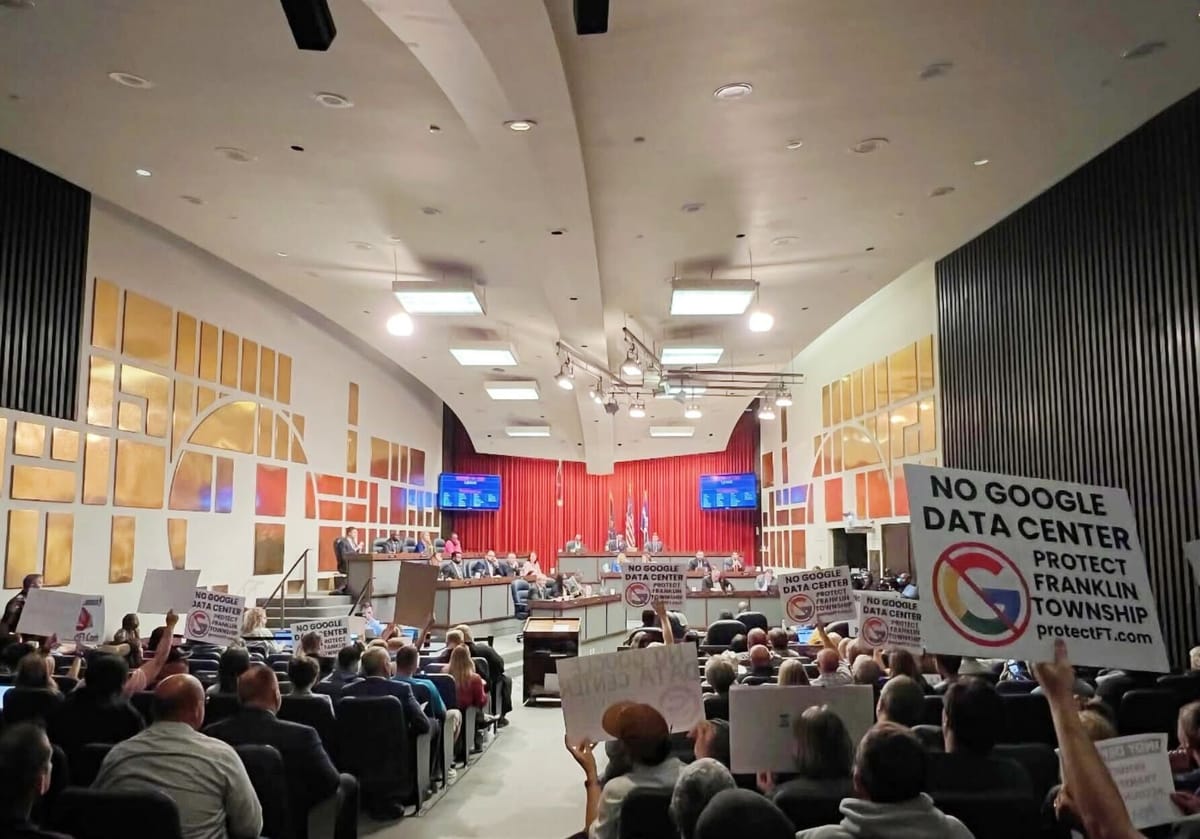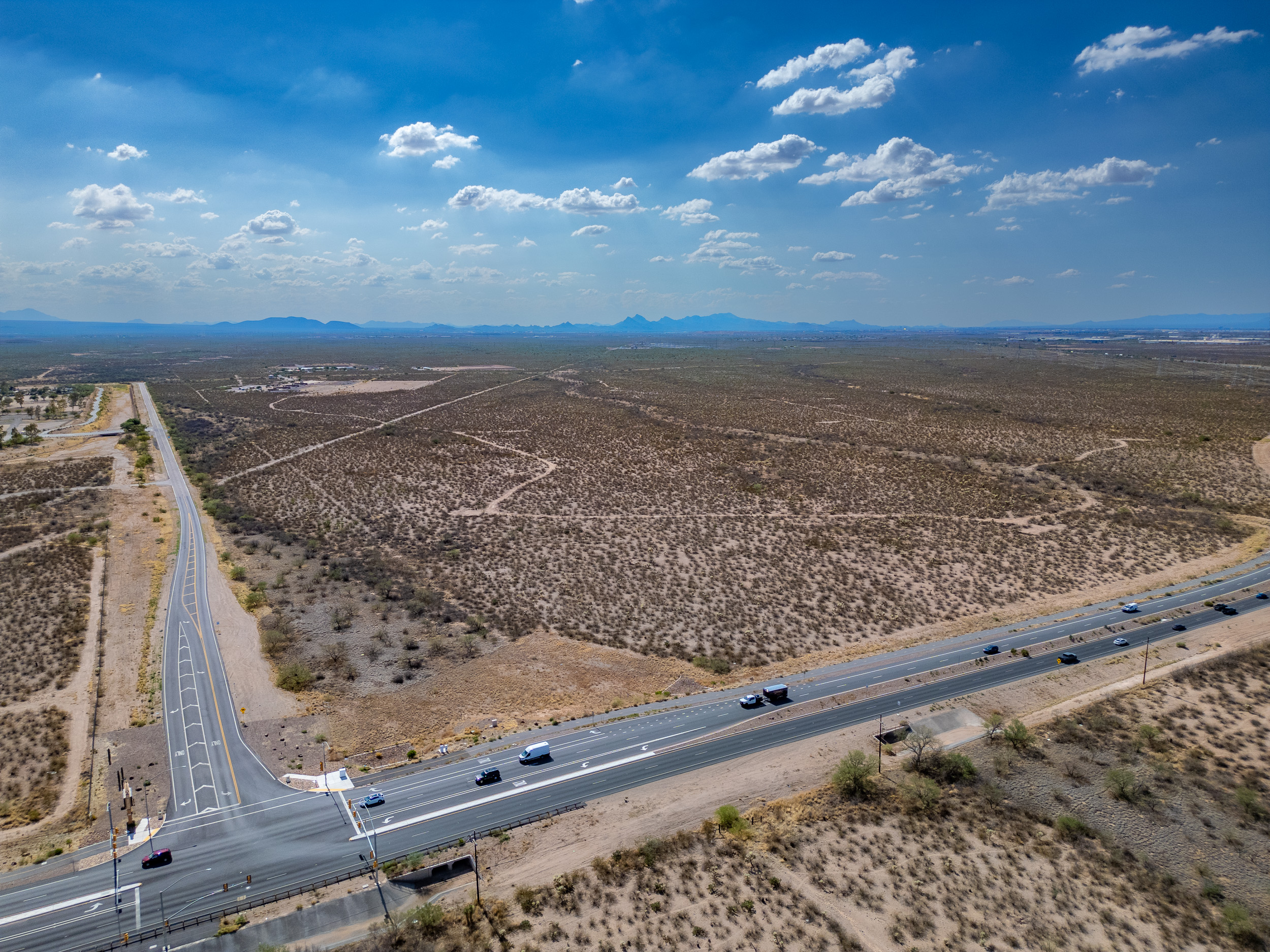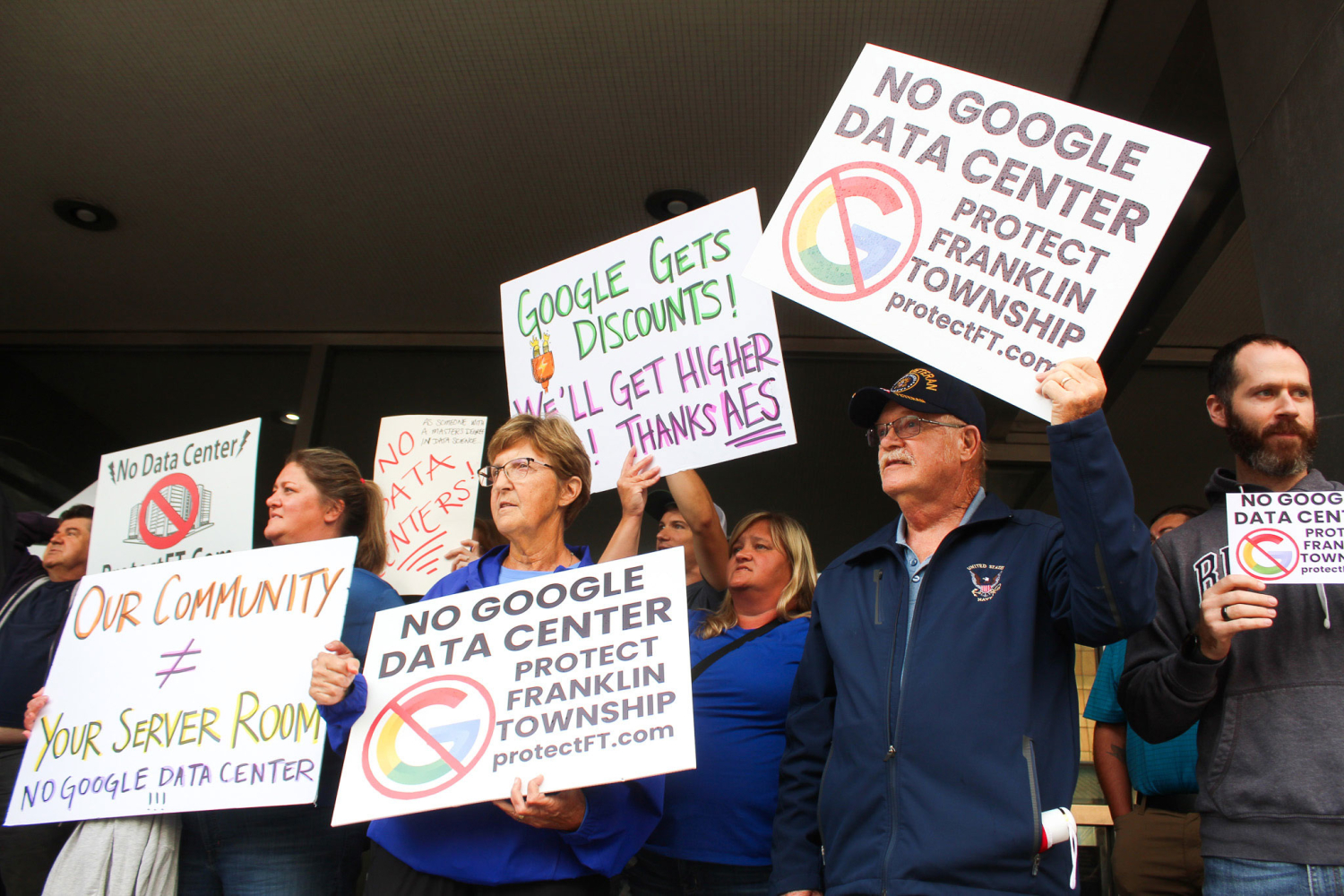Why Big Tech’s Push for Data Centers Should Worry Us All
Communities everywhere are ramping up resistance to the extraction and pollution powering AI

As Climate Week was underway this week in New York City, Sam Altman was nearly 1,700 miles away in central Texas — and busy rapidly expanding his own climate footprint.
Since Monday, OpenAI has doubled down on its leading role in Silicon Valley’s race to build out AI infrastructure — in particular, data centers. As communities ramp up resistance to new data center construction everywhere from Alexandria, Virginia to Tucson, Arizona, major technology companies are charging ahead with their own dystopian plans.
Data centers consume substantial amounts of water and, as anthropologist Steven Gonzalez Monserrate writes, “collectively devour more energy than some nation-states.” At their largest, these industrial warehouses packed with computer servers — and the equipment needed to keep them cool — can span millions of square feet. Mark Zuckerberg has promised to build one the size of Manhattan.

According to CNBC, the plans OpenAI just announced would require an estimated “17 nuclear plants or about nine Hoover Dams” worth of energy. Even the editorial board of The Financial Times — not exactly a progressive publication — has called the immense environmental costs of AI infrastructure ironic “given tech companies’ image as shiny, clean replacements for old smokestack industries.”
There’s no irony — tech leaders have carefully curated and rhetorically reinforced their industry’s “shiny, clean” facade for decades. But the connections between companies like Amazon, Google, and Microsoft and the “old smokestack industries” are everywhere you look. The construction and operation of data centers is made possible by some of the world’s most extractive and polluting industries, from open-pit mining to fossil-fueled power grids, and these relationships are symbiotic.
BP has a long-standing relationship with Amazon Web Services; ExxonMobil has oil-field operations powered by Microsoft’s cloud infrastructure. Dominion Energy — the largest utility in Virginia’s “Data Center Alley” and a company with a track record of violating state and federal environmental laws — is citing expected growth in data center energy demands as a reason to construct new gas-powered plants and keep two coal-fired plants online.
Sacrifice zones
When it comes to data centers, frontline communities are finding themselves on well-trodden ground: with an industry treating them as sacrifice zones forced to pay the environmental and public health costs of unchecked corporate profit-seeking.
From systematically obscuring the resource consumption and environmental impacts of these projects to exploiting communities’ needs for tax revenue, tech companies’ behaviors surrounding the construction and operation of data centers are squarely in line with fights communities have waged against “traditional” industrial infrastructures like power plants, factory-farming operations, and oil and gas pipelines.
Developers across the companies are using nondisclosure agreements (NDAs) with local officials to guard the details of their projects so closely that in many cases, the public doesn’t learn about a project until it’s on the brink of approval. This summer in Tucson, the details of a data center facility were disclosed to the public only after developers had been in discussion with local officials — who were bound by an NDA — for over a year. Even then, it wasn’t clear who was behind the project until a local independent news outlet uncovered the secretive entity: Amazon Web Services.

As MediaJustice details in a recent report on the expansion of data center development in the U.S. South — where the environmental justice movement began — these parallels are only becoming more stark: “While Big Tech boasts of the ‘magic’ and ‘super intelligence’ of AI, it is clear that they see poisoning Black communities and consuming billions of gallons of water in drought stricken states as collateral damage in their AI-driven wealth building.”
Journalists, step up
As more journalists and outlets take up this story — and we desperately need more reporters and newsrooms on the beat — keeping the bigger picture in frame becomes increasingly critical. It’s too easy to frame the rapid buildout of this infrastructure as an investment in our collective future. After all, a data center is making it possible for you to read this piece.
But this unprecedented explosion in data center construction is an investment in one specific vision for the future — one that entrenches the power of dominant technology companies and enriches only those, like Sam Altman, who are at their helm.
Just as energy companies aren’t building multibillion-dollar oil and gas pipelines while imagining a world where fossil fuels will be regulated beyond profitability, tech companies aren’t investing billions in data centers while imagining a future where data-intensive surveillance technologies — including generative AI — are less ubiquitous or less profitable than they are today.
It’s a future where our communities’ resource needs take a back seat to the speculative pet projects of billionaires like Mark Zuckerberg — whose plans for a 4 million square foot data center campus in northeast Louisiana will require three new gas power plants to operate.
It’s a future tech companies are marketing as progress, even as these corporations cozy up to the Trump administration and other right-wing, authoritarian regimes around the world. It’s a future that we’re being told is inevitable.
But on Monday, right before Altman announced OpenAI’s latest plans to massively scale up its planned AI infrastructure buildout, Google withdrew its proposal to build a hyperscale data center near Indianapolis after months of sustained community opposition.

Earlier in September, data center development was put on hold in Prince George’s County, Maryland. So many residents showed up at the county’s data center task-force meeting that even the overflow room was at capacity.
Silicon Valley may be racing ahead, but communities are catching up.
Teamwork
Compiled by Julio Ricardo Varela, Craig Aaron and Amy Kroin
TikTok is back in the news after Trump signed an executive order Thursday that, as the Associated Press notes, according to Trump, “will allow TikTok to continue operating in the United States in a way that meets national security concerns.”
Behind the executive order, the actual deal is not finalized. Several reports note that American investors include Oracle (hi, billionaire Trump supporter Larry Ellison), Fox Corporation (hey, Murdochs), private-equity firm Silver Lake and MGX, a Trump-allied crypto-investment firm based in the United Arab Emirates. The new U.S. TikTok board may also include a Trump-appointed member.

“This deal further cements the power of a small class of billionaire Trump allies to weaponize and control our public discourse,” Nora Benavidez, Free Press director of digital justice and civil rights, said. “All the while, the White House is subverting reality and targeting independent media literally every day. This transfer narrows diversity of ownership of media companies and is a major blow to the First Amendment rights of the platform’s many users.”
There’s also an update about reporter Mario Guevara, a case that Pressing Issues has been following. Free Press on Friday filed an amicus brief with the Committee to Protect Journalists (CPJ), the Freedom of the Press Foundation, PEN America and Reporters Without Borders supporting Guevara’s habeas corpus petition challenging his 100+-day detention by U.S. Customs and Immigration Enforcement (ICE).

Finally, we are ending the week with a big First Amendment win.
Free Press learned that a federal judge in Florida dismissed seven of the 14 charges that were filed against reporter Timothy Burke, who prosecutors are targeting for airing unaired footage from the former Fox News talk show Tucker Carlson Tonight. Judge Kathryn Kimball Mizelle’s ruling cited a June amicus brief that Free Press and other free-speech organizations filed.

“Judge Mizelle’s decision is a crucial victory for the First Amendment — for journalists, for internet users, and, most immediately, for Timothy Burke,” said Yanni Chen, legal director at Free Press. “The court recognized that the government’s theory not only posed serious threats to press freedom, but also to anyone engaged in everyday internet activity.”
The kicker
“We can’t just be blinded by the shiny moment. These industries promise tax revenue and jobs, but 15 or 20 years from now, what will the real cost be to our communities? A $10 billion loss might sound huge to us, but to (Meta CEO) Mark Zuckerberg, it’s like buying a round of drinks at the bar.” — Davante Lewis, a member of the Louisiana Public Service Commission in The Lens.
About the author
Jenna Ruddock supports Free Press’ policy, legal and communications work across issue areas, with a focus on technology, surveillance, digital civil rights and dissent. Follow Jenna on Bluesky.











